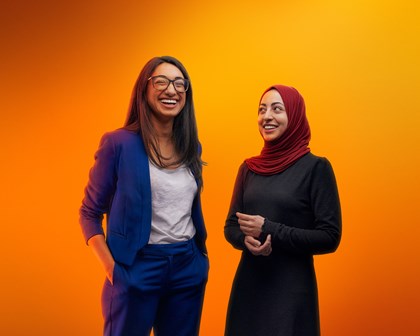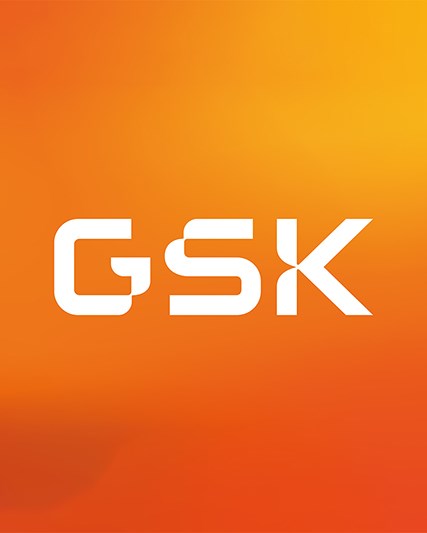We know that diverse teams help us perform better as a company, bringing better insights, better quality decision-making, and more innovative solutions. It's why we embrace the power of diversity, equity and inclusion across our company. It shapes our science, our work to drive access to our medicines and vaccines, and the people and culture at GSK.

We're continually building on our approach to inclusion and diversity for our people, in the way we do business and in the communities in which we operate.
To get ahead of disease and achieve health impact at scale, we must actively understand the causes of health inequality and help develop solutions to reduce disparities in health outcomes.
Health equity isn't a challenge that can be solved by one organisation, and we must work with others across the broader health ecosystem, including regulators, patient advocacy groups, NGOs, and peers - always listening to and putting the needs of patients at the heart of what we do.
GSK is best positioned to help find solutions to health disparities where we can leverage our science, technology and talent in the disease areas we are focused on: vaccines, HIV, respiratory health and oncology.
Learn more about this topic from our Behind the science article.
Diseases and medicines can affect people differently depending on their ethnicity, sex, race and age. This means it is important to ensure that the patients enrolled in our clinical trials represent the real-world patient population - those most impacted by the disease under study.
For the past two years, 100% of our Phase III clinical trials have had diversity plans in place before enrolment has started to reflect the people most impacted by a particular disease.
We have set an ambitious target to enrol the communities represented in these plans into our trials so that our data better represents real-world outcomes for patients. As a start, we have set a goal that at least half of Phase III trials completing enrolment in 2024 will meet our required diversity threshold so that our trial participants represent the disease epidemiology.
Learn more about diversity in clinical trials.
We’re investing in STEM education to make it more equitable and to support and inspire the next generation of diverse, talented innovators.
Our GSK Science in the Summer™ initiative offers free, hands-on STEM learning in community settings to students in the US from groups traditionally under-represented in STEM careers, or from under-resourced communities. It has reached more than 380,000 children across the US since its launch in 1986.
In 2020, we committed $10 million over 10 years to support the number of women and Black and Latinx students in Philadelphia entering STEM careers. More than 138,000 students of all backgrounds have benefited from GSK STEM equity grants provided to local non-profit organisations so far. Find out more at US charitable investments.
In the UK, we launched a £6 million, 10-year STEM equity programme, targeting 11–25-year-old girls and young women, black people and people from low socio-economic backgrounds. The programme includes nationwide STEM mentoring, delivered in partnership with established mentoring organisations. In its first four years, we aim to reach approximately 5,500 young people through this programme.
Other community investments that support diverse communities include:
Through our supplier diversity programme, we seek to provide opportunities to under-represented groups, including women, ethnic minorities, members of the LGBTQ+ community, people with disabilities and military veterans.
These partnerships can also provide an economic boost to the wider community. So as well as measuring how much we're spending with diverse-owned suppliers, we’re also looking holistically at the positive economic benefit that GSK and our partner suppliers will bring to the communities that we all live and work in.
We’re also engaging with key advocacy organisations for diverse suppliers by speaking at their forums, joining their boards, and sponsoring appropriate conferences. These organisations include National Minority Supplier Development Council (NMSDC), Women’s Business Enterprise National Council (WBENC), National LGBT Chamber of Commerce (NGLCC), and Minority Supplier Development UK (MSDUK).
Diversity, equity and inclusion inside GSK
At GSK, we foster an inclusive environment that embraces and celebrates diversity, allowing everyone to be themselves. We hold ourselves and each other accountable, ensuring that respect and inclusivity are at the heart of our company culture.
We want GSK to be a workplace where everyone can feel a sense of belonging and can thrive. Being a diverse organisation at all levels also brings greater opportunity to create better health outcomes for the patients who rely on us.
We want our leadership to reflect our GSK people and our people to reflect the communities in which we work and hire. Our commitment to equal employment opportunity and non-discrimination is the foundation for these aspirations, supported by fair and equitable recruitment and selection processes.
Our ethnicity aspirations:
In the UK at the end of 2023, we had 18.4% ethnically diverse leaders at VP-and-above, compared with 14.3% in 2022. We had 1.9% Black leaders at VP level and above compared with 1.6% in 2022.
In the US at the end of 2023, we had 35.7% ethnically diverse leaders at VP-and-above, compared with 31.3% in 2022.
We had 8.1% Black or African American leaders at VP-and-above compared with 8.6% in 2022. We had 6.4% Hispanic or Latinx leaders at VP-and-above compared with 6.4% in 2022.
We have reviewed our recruitment processes and have worked with an external partner to ensure we're implementing best practices and ensuring fair and equitable opportunities. This includes enhanced training for recruiting managers before the selection process starts, and a review of job postings and channels to make sure we’re reaching and attracting diverse candidates.
We strive to foster a culture of empathy and acceptance where we embrace each other's differences and identities, and we aim to be recognised in global LGBTQ+ indices to ensure best practice. We work with a number of groups on this including:
We are addressing gender equality at all levels within our organisation.
We are making great strides with the support from our Global Gender Council and our Women's Leadership Initiative (WLI) employee resource group.
At the end of 2023, women held 45% of VP-and-above roles globally, compared with 42% in 2022. Women made up 48% of all employees in 2023, and 50% of all management roles.
We have been recognised in The Times Top 50 employers for women, and our colleagues have been recognised by the Healthcare Businesswomen’s Association for their work to advance the impact and influence of women in healthcare.
With support from our Global Disability Council and our employee resource group, the Disability Confidence Network, we are working hard to create an inclusive workplace.
Since 2020, GSK has been an active member of the Valuable 500 pledge, a grouping of 500 global companies all committed to placing disability inclusion on the leadership agenda. We are delivering on its objectives through our disability confidence plan.
We continue to invest in an accessible workplace, including our award-winning Workplace Adjustment Service.
We educate our people on disability confidence as part of our long-term, measurable, strategic disability confidence plan.
We are members of the UK Government's Disability Confident Scheme and signatories to the UK Department for International Development's Charter for Change.
We remain committed to improving the application of fair and equitable pay practices to ensure equal opportunities and equal pay for equal work. We conduct country-based reviews and ensure all markets have clear guidance, tools and support to ensure pay equity. If unexplainable differences are detected, we address them through our compensation processes.
Gender pay gap
We published our seventh UK gender pay gap report in 2023. Our gender pay gap for all permanent UK-based GSK employees is -0.50% (mean), compared to the national average of 13.2%.
Ethnicity pay gap
We published our second UK ethnicity pay gap report for 2023 comparing the average pay of our White and Ethnically Diverse employees. Our 2023 UK ethnicity pay gap for all permanent UK-based GSK employees is -0.74% (mean), compared with 0.06% in 2022.
In addition, within our 2023 UK ethnicity pay gap report we are also sharing the pay gaps comparing the average pay of our White employees with those in the ethnic groupings of Black, Mixed, Asian, and Other. This is with reference to the UK government’s recently published guidance to provide a more granular view.
Employees driving change
Our Employee Resource Groups (ERGs) run events, workshops and initiatives where everyone is welcome to learn, contribute and feel connected. The lead volunteers meet regularly with our Global Diversity Councils and GSK Leadership Team members to share ideas, priorities and perspectives.

















